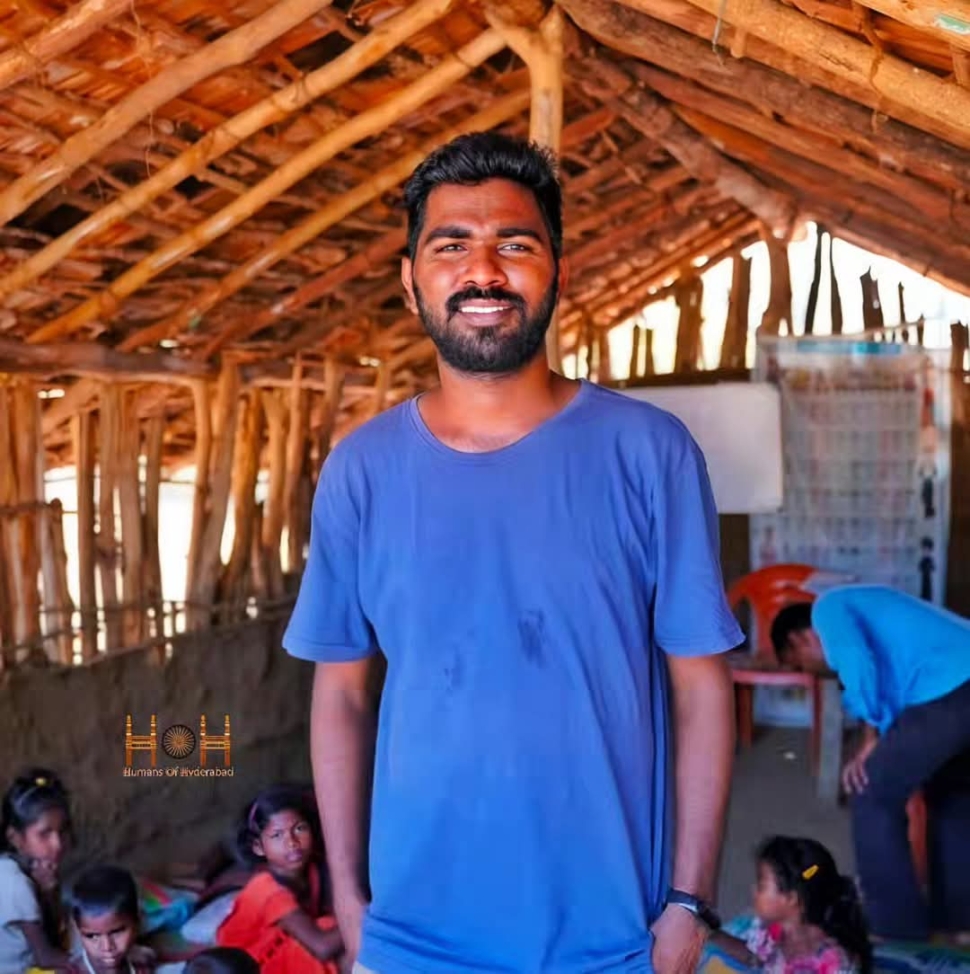“I am Santhosh Esram, from Narlapur Village in the Etunagaram region of Mulugu district, Telengana. I was born into poverty, surrounded by the harsh realities of untouchability and caste discrimination. My parents, though illiterate and working as daily wage laborers in agriculture, believed in one thing: education. They didn’t have much, but they dreamed that their children could live a better life through learning. It’s because of their sacrifices that I am here today, sharing my story.
From my earliest memories, caste wasn’t just a word; it was a shadow that followed us everywhere. Even in classrooms, discrimination was apparent. Teachers and classmates treated children from lower castes differently. It wasn’t always direct, but the whispers, the looks, and the subtle segregation cut deeper than words. I realized early on that social equality was not just absent in my village—it was a concept many didn’t even believe in.
Determined to make a difference, I pursued a master’s degree in journalism at Osmania University Arts College. This decision was driven by my desire to understand and expose the inequalities I had witnessed. During my time at university, I also discovered a love for photography. While my classmates prepared for exams, I packed my bag and explored the world beyond the classroom. With borrowed cameras and rented gear, I traveled across India—Delhi, Chhattisgarh, Uttarakhand, Jharkhand, Odisha, and beyond. Each journey brought me face-to-face with lives like mine: stories of poverty, resilience, and survival.
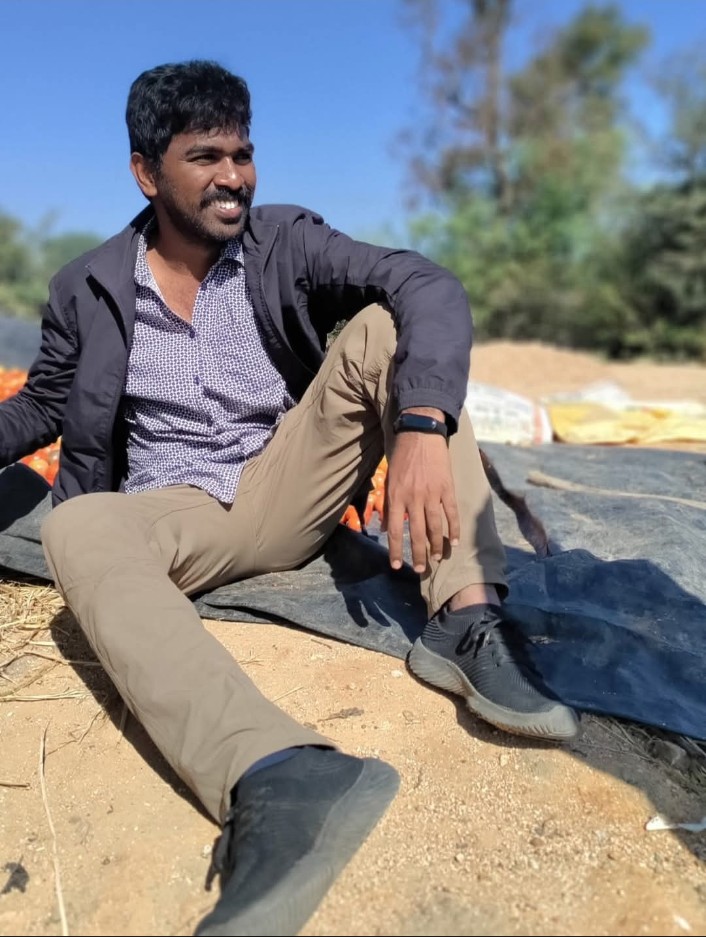
Movies also inspired me, though not in the traditional sense. I grew up never seeing my life reflected on screen. Heroes were never like me; they weren’t from backward castes. When people like us were portrayed, it was always as menial laborers or scavengers. It was painful, but it also sparked a fire in me. I wanted to tell stories that represented my community with dignity, stories that challenged stereotypes and celebrated resilience.
That dream began to take shape in 2020 when I founded the Bheem Children Happiness Centre. The inspiration came from my childhood.
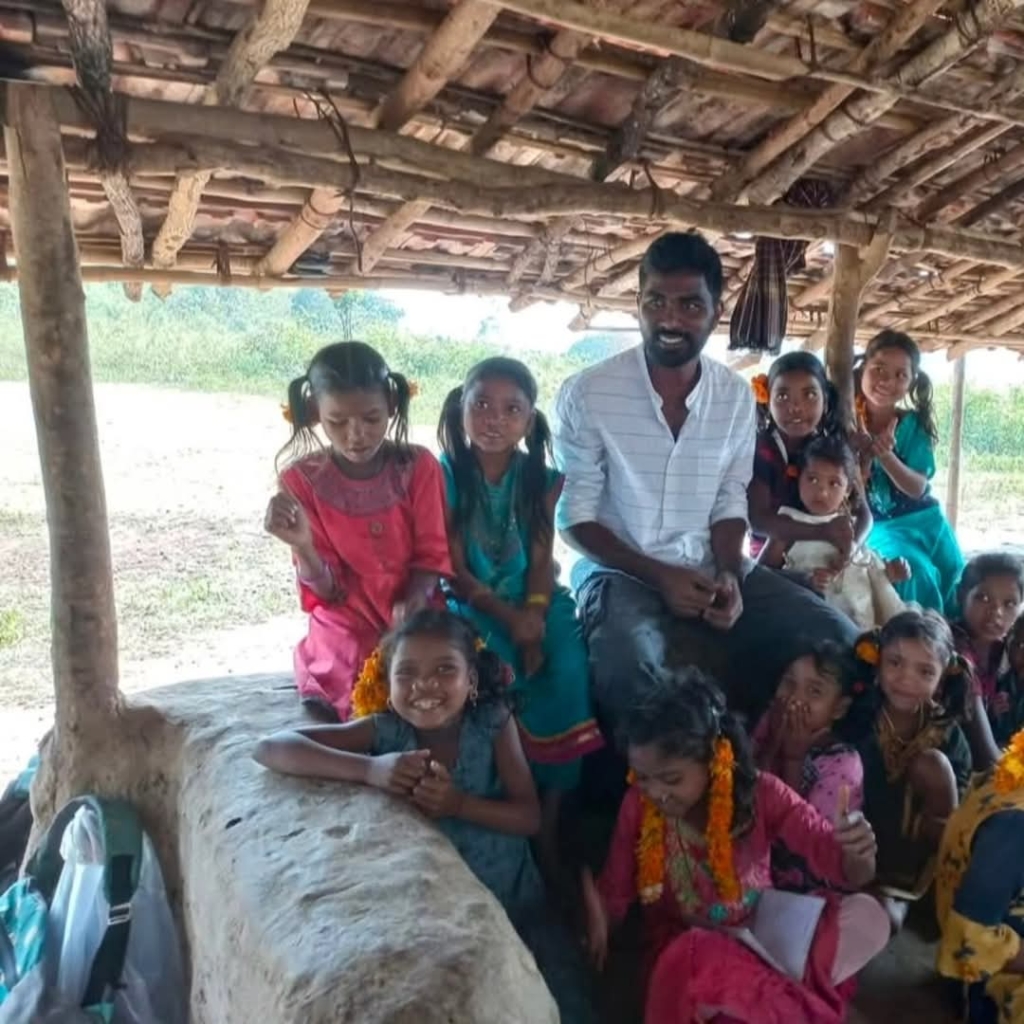
Over 25 years ago, a devastating flood destroyed our home. My family and others sought refuge in a forest, clearing land to survive. Amidst that chaos, an NGO called Mari set up a small hut to educate children like me. I studied there until 2nd grade before moving on to a government school. That small hut changed the trajectory of my life, and I knew I had to create the same opportunity for others.
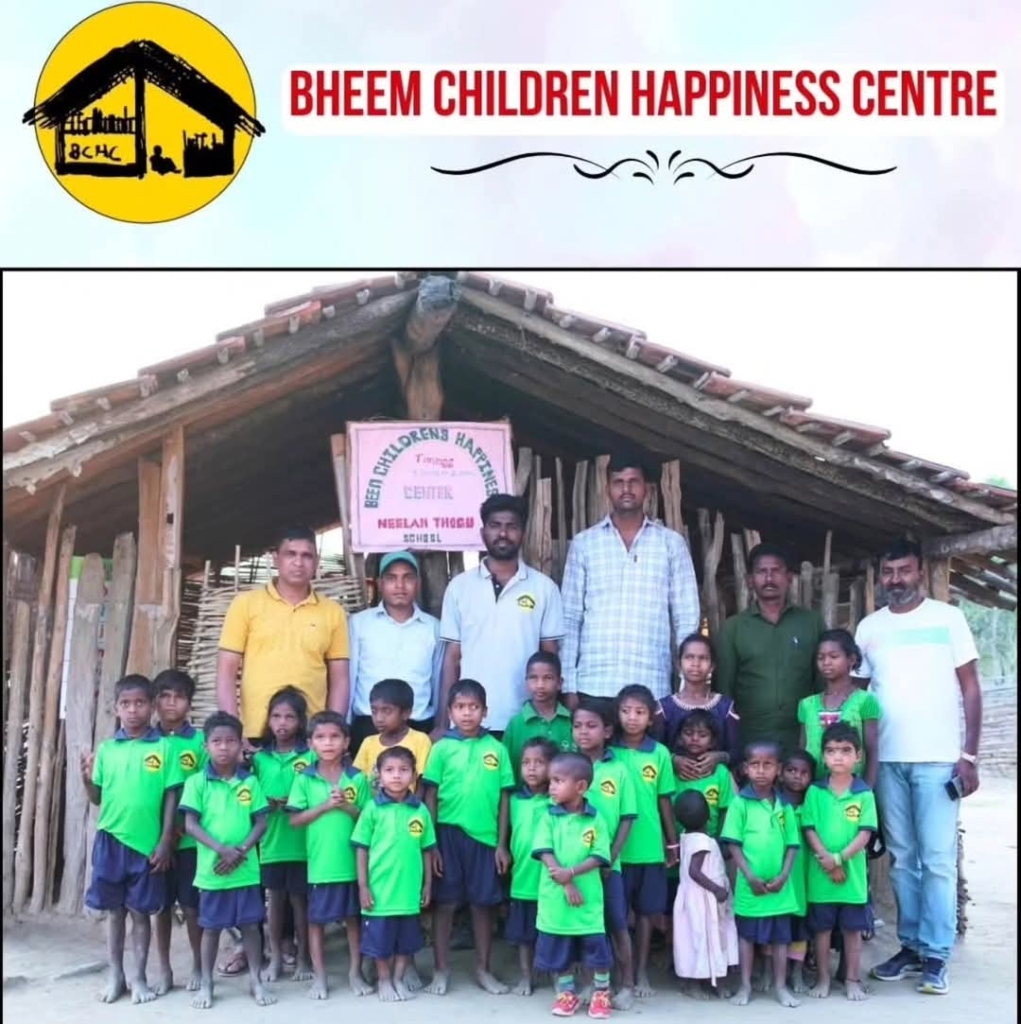
Starting small, the Bheem Children Happiness Centre began constructing makeshift huts to serve as learning centers with the community’s help. Today, we operate nine centers across villages in Mulugu district, including Neelamthogu, Saralamma Gumpu, Takkellagudem, Danduapally, Ailapuram, Kalwapally, Bandlapahad, Musalammapenta, and Project Nagar.
At its peak, the centre supported 350 children, though the number has now stabilized at 250. Most of these children are first-generation learners whose parents migrated from Chhattisgarh in search of work. Many families lack even basic identification like Aadhaar cards, making access to government schemes nearly impossible.
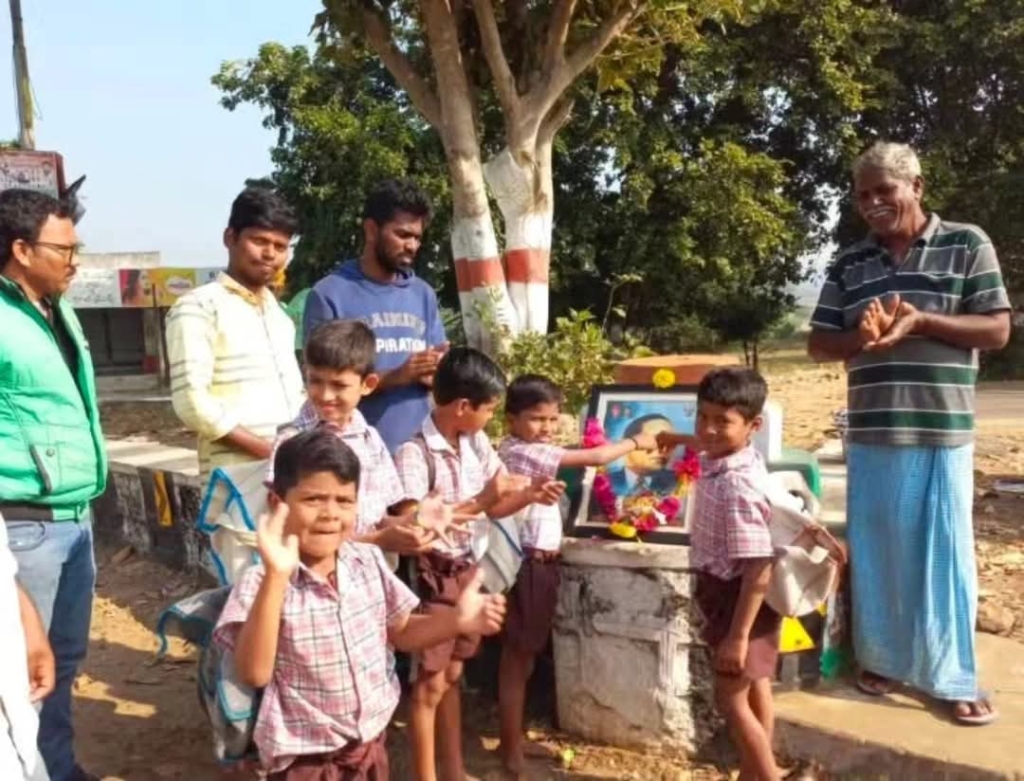
At the Bheem Children Happiness Centre, we’ve developed a system tailored to these children’s unique challenges. It’s not just about academics. Our curriculum focuses on life skills, cleanliness, and confidence-building—what we call the “Happiness Curriculum.” Our aim is to prepare these kids for the challenges of the outside world before they transition to government schools after 2nd grade.
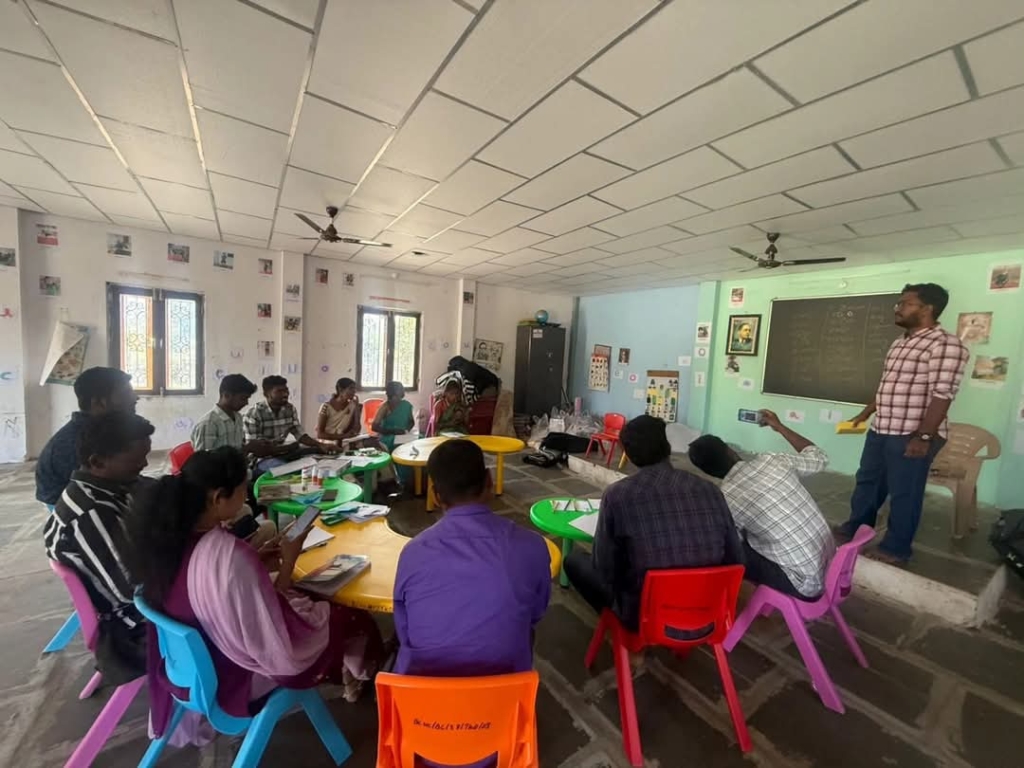
This journey wouldn’t have been possible without the unwavering support of my team. Sheshinder Reddy, Naresh Dudapaka, Chanda Gunmantharao, and other team members are my strength in running these schools. Their dedication and commitment ensure that the centres run smoothly and continue to make a difference in the lives of these children.
My wife, a government school teacher, is my pillar of strength. She not only supports me but also actively contributes ideas to the centre. Together, we dream of expanding this initiative and creating a curriculum that emphasizes human rights, problem-solving, and holistic development—things often overlooked even in elite schools.
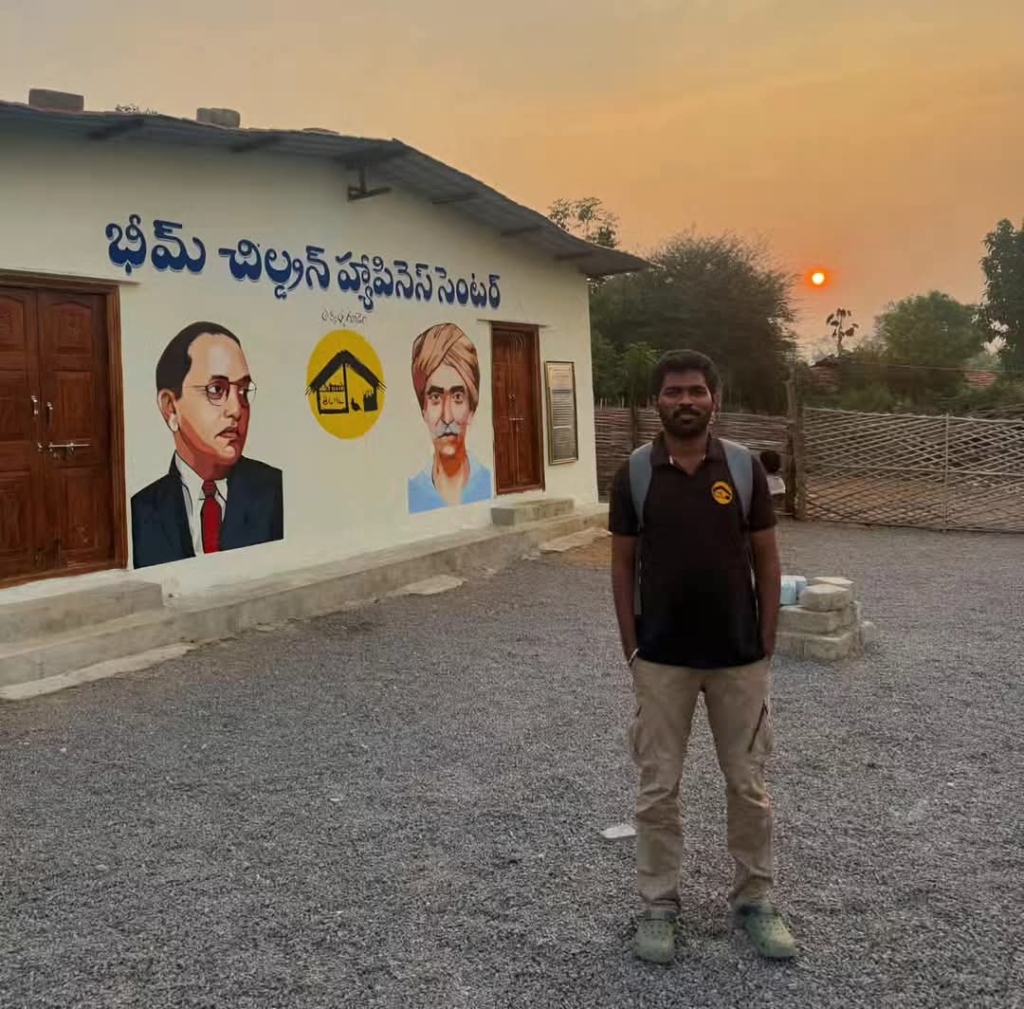
Education, to me, is not just about earning a living; it’s about building better individuals and, in turn, a better society. Through the Bheem Children Happiness Centre, we aim to create lasting change and ensure no child feels like they don’t belong.
My journey has been inspired by great leaders like Dr. B.R. Ambedkar, Martin Luther King Jr., Che Guevara, and Nelson Mandela—visionaries who fought for justice and human rights against all odds. I’ve also been fortunate to have mentors like Dr. Mamidi Harikrishna Sir, who supported me when I first arrived in Hyderabad. I was a stranger to the city, and his guidance helped me find my footing.
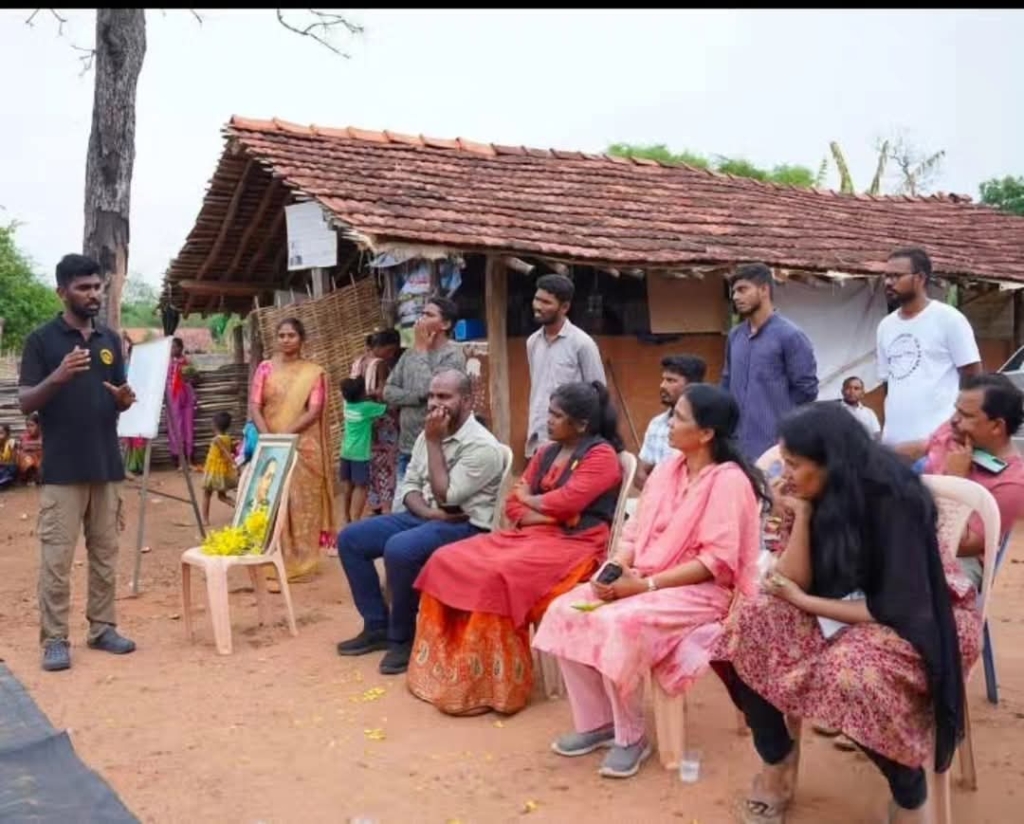
Of course, there have been challenges. Social media can be particularly harsh, with people quick to criticize without understanding the effort behind the work. But I’ve learned to focus on the positive—on the lives we’ve touched and the children we’ve empowered.
One of my proudest moments was hosting a photography exhibition supported by the state government. The exhibition showcased lives from tribal areas, shining a light on stories that are often ignored. Moments like these remind me why I started this journey.
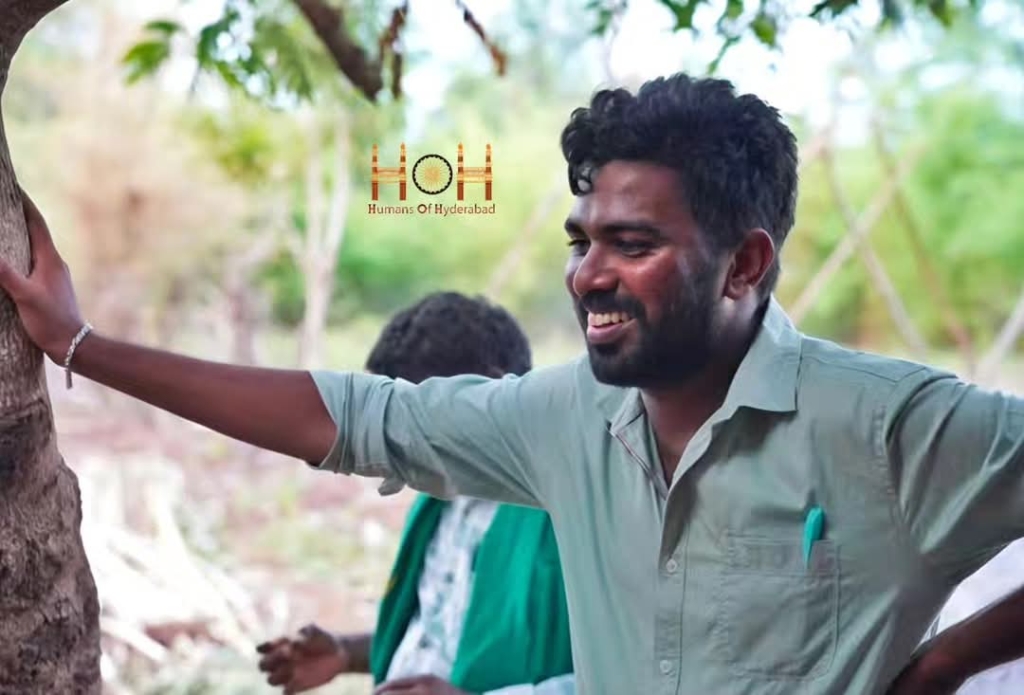
Looking ahead, I want to do more. I dream of publishing a book featuring the photographs I’ve taken over the years, a visual story of resilience, hope, and humanity. As the Bheem Children Happiness Centre grows, I aim to build a system that goes beyond education, nurturing well-rounded individuals who can challenge the inequalities they inherit.
My story isn’t just about me—it’s about giving back to a community that shaped me and ensuring no child feels like they don’t belong. I don’t just want to grow; I want to grow with the people around me, building a world that is fairer and kinder for everyone.”
- Santhosh Esram, Photojournalist & Director of Bheem Children Happiness Centre
